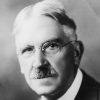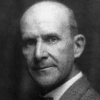The best way I kno ov tew repent of enny thing is tew do better next time.
[The best way I know of to repent of anything is to do better next time.]
Josh Billings (1818-1885) American humorist, aphorist [pseud. of Henry Wheeler Shaw]
Everybody’s Friend, Or; Josh Billing’s Encyclopedia and Proverbial Philosophy of Wit and Humor, ch. 139 “Affurisms: Hooks & Eyes” (1874)
(Source)
Variant:
The best way I know to REPENT of anything is not to do it again and to do better next time.
[H. Montague, ed., Wit and Wisdom of Josh Billings (1913)]
Quotations about:
improvement
Note not all quotations have been tagged, so Search may find additional quotes on this topic.
For the Father of agriculture
Gave us a hard calling: he first decreed it an art
To work the fields, sent worries to sharpen our mortal wits
And would not allow his realm to grow listless from lethargy […]
So thought and experiment might forge man’s various crafts
Little by little, asking the furrow to yield the corn-blade,
Striking the hidden fire that lies in the veins of flint.[Pater ipse colendi
haud facilem esse viam voluit, primusque per artem
movit agros curis acuens mortalia corda
nec torpere gravi passus sua regna veterno […]
ut varias usus meditando extunderet artis
paulatim et sulcis frumenti quaereret herbam.
Ut silicis venis abstrusum excuderet ignem.]Virgil (70-19 BC) Roman poet [b. Publius Vergilius Maro; also Vergil]
Georgics [Georgica], Book 1, l. 121ff (1.121-124, 133-135) (29 BC) [tr. Day-Lewis (1940)]
(Source)
Telling how Jupiter made life on earth miserable for farmers so as to encourage the development of useful arts and crafts.
(Source (Latin)). Alternate translations:
Nor was Jove pleas'd tillage should easie be:
And first commands with art to plough the soyle,
On mortall hearts imposing care, and toyle;
Nor lets dull sloth benumb men where he reigns [...]
That severall arts by labour might be found,
And men in furrows seek the grain that fell,
And hidden fire from veins of flint compell.
[tr. Ogilby (1649)]
The Sire of Gods and Men, with hard Decrees,
Forbids our Plenty to be bought with Ease:
And wills that Mortal Men, inur'd to toil,
Shou'd exercise, with pains, the grudging Soil.
Himself invented first the shining Share,
And whetted Humane Industry by Care:
Himself did Handy-Crafts and Arts ordain;
Nor suffer'd Sloath to rust his active Reign[...]
That studious Need might useful Arts explore;
From furrow'd Fields to reap the foodful Store:
And force the Veins of clashing Flints t' expire
The lurking Seeds of their Cœlestial Fire.
[tr. Dryden (1709), l. 183-190, 203-206]
Nor thou repine: great Jove, with tasks untry'd
To rouse man's pow'rs, an easier way deny'd;
And first bade mortals stir with art the plain,
Lest sloth should dim the splendors of his reign [...]
That gradual use might hew out arts from man,
That corn's green blade in furrows might be fought,
And from struck flints the fiery sparkle caught.
[tr. Nevile (1767), l. 147-150, 160-162]
Not to dull Indolence and transient Toil
Great Jove resign'd the conquest of the soil:
He sent forth Care to rouse the human heart,
And sharpen genius by inventive art:
Nor tamely suffer'd earth beneath his sway
In unproductive sloth to waste away. [...]
Jove will'd that use, by long experience taught,
Should force out various arts by gradual thought,
Strike from the flint's cold womb the latent flame,
And from the answering furrow nurture claim.
[tr. Sotheby (1800)]
The Sire himself willed the ways of tillage not to be easy, and first aroused the fields by art, whetting the skill of mortals with care; nor suffered he his reign to lie inactive in heavy sloth [...] that experience, by dint of thought, might gradually hammer out the various arts, in furrows seek the blade of corn, and form the veins of flint strike out the hidden fire.
[tr. Davidson (1854)]
Our heavenly Father hath not judged it right
To leave the road of agriculture light:
'Twas he who first made husbandry a plan.
And care a whetstone for the wit of man;
Nor suffer'd he his own domains to lie
Asleep in cumbrous old-world lethargy [...]
That practice might the various arts create,
On study's anvil, by laborious dint,
The plant of corn by furrows propagate,
And strike the fire that lurks in veins of flint.
[tr. Blackmore (1871), ll. 140-145, 154-157]
The wise Father of all willed not that the path of husbandry should be easy; he was the first to break up the earth by human skill, sharpening man's wit by the cares of life, nor suffering his own domains to lie asleep in cumbrous lethargy [...] in order that practice might by slow degrees hammer out art after art on the anvil of thought, might find the corn-blade by delving the furrow, and strike from veins of flint the fire that Jove had hid.
[tr. Wilkins (1873)]
The great Sire himself
No easy road to husbandry assigned,
And first was he by human skill to rouse
The slumbering glebe, whetting the minds of men
With care on care, nor suffering realm of his
In drowsy sloth to stagnate [...]
that use by gradual dint of thought on thought
Might forge the various arts, with furrow's help
The corn-blade win, and strike out hidden fire
From the flint's heart.
[tr. Rhoades (1881)]
For so great Jove, the sire of all, decreed,
No works save those that took us should succeed,
Nor wills his gifts should unimproved remain.
While man inactive slumbers on the plain. [...]
Man seeks for fire concealed within the veins
Of flints, and labour groans upon the plains;
Till, one by one, worked out by frequent thought,
Are crude inventions to perfection brought.
[tr. King (1882), ll. 123-126, 135-138ff]
Father Jove himself willed that the modes of tillage should not be easy, and first stirred the earth by artificial means, whetting the minds of men by anxieties; nor suffered he his subjects to become inactive through oppressive lethargy [...] in order that man’s needs, by dint of thought, might gradually hammer out the various arts, might seek the blade of corn by ploughing, and might strike forth the fire thrust away in the veins of the flint.
[tr. Bryce (1897)]
Our Lord himself willed the way of tillage to be hard, and long ago set art to stir the fields, sharpening the wits of man with care, nor suffered his realm to slumber in heavy torpor [...] that so practice and pondering might slowly forge out many an art, might seek the corn-blade in the furrow and strike hidden fire from the veins of flint.
[tr. Mackail (1899)]
The great Sire himself
No easy road to husbandry assigned,
And first was he by human skill to rouse
The slumbering glebe, whetting the minds of men
With care on care, nor suffering realm of his
In drowsy sloth to stagnate [...]
that use by gradual dint of thought on thought
Might forge the various arts, with furrow's help
The corn-blade win, and strike out hidden fire
From the flint's heart.
[tr. Greenough (1900)]
Allfather himself hath willed
That the pathway of tillage be thorny. He first by man's art broke
Earth's crust, and by care for the morrow made keen the wits of her folk,
Nor suffered his kingdom to drowse 'neath lethargy's crushing chain [...]
That Thought on experience' anvil might shape arts manifold,
And might seek in the furrow the blade that is pledge of the harvest's gold,
And smite from the veins of flint the fire-soul hidden there.
[tr. Way (1912)]
Great Jove himself ordained for husbandry
No easy road, when first he bade earth's fields
Produce by art, and gave unto man's mind
Its whetting by hard care; where Jove is king
He suffers not encumbering sloth to bide. [...]
He purposed that experience and thought
By slow degrees should fashion and forge out
Arts manifold, should seek green blades of corn
By ploughing, and from veins of flinty shard
Hammer the fire.
[tr. Williams (1915)]
The great Father himself has willed that the path of husbandry should not run smooth, who first made art awake the fields, sharpening men’s wits by care, nor letting his kingdom slumber in heavy lethargy [...] so that experience, from taking thought, might little by little forge all manner of skills, seeking in ploughed furrows the blade of corn, striking forth the spark hidden in the veins of flint.
[tr. Fairclough (Loeb) (1916)]
The Father willed it so: He made the path
Of agriculture rough, established arts
Of husbandry to sharpen wits,
Forbidding sloth to settle on his soil
[...] So that mankind
By taking thought might learn to forge its arts
From practice: seek to bring the grain from furrows,
Strike out the fire locked up in veins of flint.
[tr. Bovie (1956)]
Jupiter, father of the gods, decided himself
that the way of the farmer should not be an easy way.
He demanded craft; he tuned our nerves with worries;
he weeded lethargy from his human fields [...]
Thus men are supposed to have found the fire that hides
in the veins of flint. By clever meditation
experience elaborates to skill ...
One can see a triumph in it: the first furrow
sprouting a row of corn ....
[tr. Slavitt (1971)]
The father of cultivation himself did not want its way to be easy and wa first to change the fields by design, sharpening mortal wits with cares, not allowing his kingdoms to become sluggish with heavy old age [...] in order that experience and reflection should beat out skills little by little and seek grain stalks in the furrows, that they should strike out fire hidden in the veins of flint.
[tr. Miles (1980)]
The Father himself
Willed that the path of tillage be not smooth,
And first ordained that skill should cultivate
The land, by care sharpening the wits of mortals,
Nor let his kingdom laze in torpid sloth [...]
That step by step practice and taking thought
Should hammer out the crafts, should seek from furrows
The blade of corn, should strike from veins of flint
The hidden fire.
[tr. Wilkinson (1982)]
The great Father himself willed it,
that the ways of farming should not be easy, and first
stirred the fields with skill, rousing men’s minds to care,
not letting his regions drowse in heavy lethargy [...]
so that thoughtful practice might develop various skills,
little by little, and search out shoots of grain in the furrows,
and strike hidden fire from veins of flint.
[tr. Kline (2001)]
The Father himself hardly
willed that agriculture would be easy when he called forth
the field with his art, whetting human minds with worries,
not letting his kingdom slip into full-blown laziness. [...]
so that, using their brains, men might gradually hammer out
many skills, like searching for stalks of wheat by plowing,
and so that they might strike the spark held in veins of flint.
[tr. Lembke (2004)]
For it was Jupiter himself who willed the ways of husbandry be ones not spared of trouble and it was he who first, through human skill, broke open land, at pains to sharpen wits of men and so prevent his own domain being buried in bone idleness [...] so that by careful thought and deed you'd hone them bit by bit, those skills, to coax from furrows blades of corn and spark shy flame from veins of flint.
[tr. Fallon (2006)]
The Father himself willed the way of husbandry to be severe, first stirred by ingenuity the fields, honing mortal skill with tribulation, and suffered not his realm to laze in lumpish sloth [...] so that need with contemplation might forge sundry arts in time, might seek in furrows the blade of wheat and strike from flinty veins the hidden spark.
[tr. Johnson (2009)]
For Father Jupiter himself ordained
That the way should not be easy. It was he
Who first established the art of cultivation,
Sharpening with their cares the skills of men,
forbidding the world he rules to slumber in ease
[...] all this so want should be
The cause of human ingenuity,
And ingenuity the cause of arts,
Finding little by little the way to plant
New crops by means of plowing, and strike the spark
To ignite the hidden fire in veins of flint.
[tr. Ferry (2015)]
If your religion does not change you, then you had better change your religion.
Elbert Hubbard (1856-1915) American writer, businessman, philosopher
One Thousand & One Epigrams (1911)
(Source)
He that wrestles with us strengthens our nerves and sharpens our skill. Our antagonist is our helper.
Edmund Burke (1729-1797) Anglo-Irish statesman, orator, philosopher
Reflections on the Revolution in France (1790)
(Source)
Even while I protest the assembly-line production of our food, our songs, our language, and eventually our souls, I know that it was a rare home that baked good bread in the old days. Mother’s cooking was with rare exceptions poor, that good unpasteurized milk touched only by flies and bits of manure crawled with bacteria, the healthy old-time life was riddled with aches, sudden death from unknown causes, and that sweet local speech I mourn was the child of illiteracy and ignorance. It is the nature of a man as he grows older, a small bridge in time, to protest against change, particularly change for the better.
John Steinbeck (1902-1968) American writer
Travels With Charley: In Search of America, Part 2 (1962)
(Source)
I know no safe depository of the ultimate powers of the society, but the people themselves: and if we think them not enlightened enough to exercise their controul with a wholsome discretion, the remedy is, not to take it from them, but to inform their discretion by education. this is the true corrective of abuses of constitutional power.
Thomas Jefferson (1743-1826) American political philosopher, polymath, statesman, US President (1801-09)
Letter to William Charles Jarvis (28 Sep 1820)
(Source)
Every artist was first an amateur.
Ralph Waldo Emerson (1803-1882) American essayist, lecturer, poet
“Progress of Culture,” Letters and Social Aims (1876)
Full text.
Learning is not compulsory; it’s voluntary. Improvement is not compulsory; it’s voluntary. But to survive, we must learn.
W. Edwards Deming (1900-1993) American management consultant, educator
“Quality, Productivity, and Competitive Position” seminar (24-28 Feb 1986)
(Source)
Often paraphrased: "Learning is not compulsory. Neither is survival."
Be at War with your Vices, at Peace with your Neighbours, and let every New-Year find you a better Man.
Benjamin Franklin (1706-1790) American statesman, scientist, philosopher, aphorist
Poor Richard’s Almanack (1755)
More information on this quotation here.
No individual or group will be judged by whether they come up to or fall short of some fixed result, but by the direction in which they are moving. The band mans is the man who no matter how good he has been is beginning to deteriorate, to grow less good. The good man in the man who no matter how morally unworthy he has been is moving to become better. Such a conception makes one severe in judging himself and humane in judging others.
John Dewey (1859-1952) American teacher and philosopher
Reconstruction in Philosophy, ch. 7 “Moral Reconstruction” (1919)
(Source)
No one imagines that a symphony is supposed to improve in quality as it goes along, or that the whole object of playing it is to reach the finale. The point of music is discovered in every moment of playing and listening to it. It is the same, I feel, with the greater part of our lives, and if we are unduly absorbed in improving them we may forget altogether to live them.
If it had not been for the discontent of a few fellows who have not been satisfied with their condition you would still be living in caves. You never would have emerged from the jungle. Intelligent discontent is the mainspring of civilization. Progress is born of agitation. It is agitation or stagnation.
Eugene V. Debs (1855-1926) American union leader, activist, socialist, politician
“The Issue,” Speech, Girard, Kansas (23 May 1908)
(Source)
ALBANY: Striving to better, oft we mar what’s well.
William Shakespeare (1564-1616) English dramatist and poet
King Lear, Act 1, sc. 4, l. 369 (1.4.369) (1606)
(Source)
















